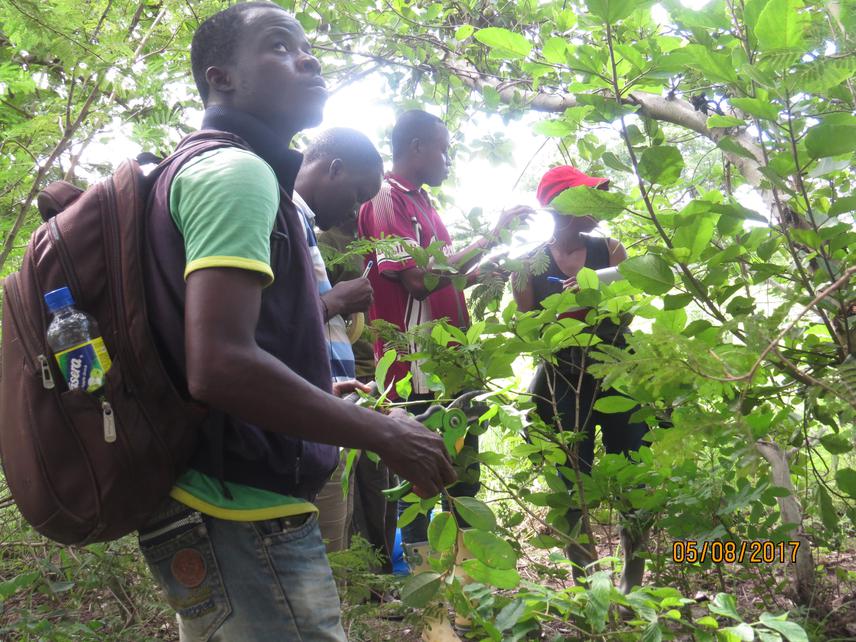Dassou Gbewonmedea Hospice
Other projects
26 Mar 2018
Reproductive Ecology and the Persistence of Ipomoea beninensis, an Endemic Plant Species in Benin
3 Jun 2020
Creating a Seedbank to Enhance the Ex-Situ Conservation of Endemic and Threatened Plant Species at the Botanical and Zoological Garden E. Adjanohoun in Benin
27 Jan 2023
Long-Term Conservation Planning for Endemic, Locally Restricted Range and Threatened Plant Species in Benin
This study aims to assess the distribution, socioeconomic importance and impacts of use of species of Ipomoea beninensis, an endemic plant species in Benin.

Vegetation study
Conservation biology is the scientific study of nature and of Earth's biodiversity with the aim of protecting species, their habitats, and ecosystems from excessive rates of extinction and the erosion of biotic interactions. It is also among main targets of natural resources management programme in Benin. The point is more critical when endemic and also threatened species are of concern. Although, there is a great awareness that I. beninensis is highly threatened in its distributional area in Benin, it is still unclear how these threats affect its conservation status in its habitats. To date no studies have focused on the conservation of this very important species in natural habitats in Benin. This work aims to set long term conservation strategies for I. beninensis through ecological inventories, ethnobotanical investigation, environment education, and public awareness.
Specifically, it aims to:
• Assess the distribution and abundance of I. beninensis in its distributional area
• Assess the socioeconomic importance and subsequent impacts of use on the species
• Initiate a community based program for a sustainable conservation of the species in its distributional area in Benin.
Quantitative data on the conservation status of Ipomoea beninensis from our project will help to set and further implement conservation measures to be taken to ensure sustainable use of the species. Local people involvement (old, adult and young of the two genders) in the project will help to set a short and middle term action on the species conservation. The project will also provide the scientists and Non-Governmental Organizations managers, other conservation-based agencies and extensionits with some key information (endogenous conservation strategies, demographic and structural data on the species) which will help in field activities, and provide technical information for a better use of the species and other species of similar biology. IUCN will be provided with the gathered data in order to evaluate the status of the species. Results will contribute in database building on useful plant species in Benin and Africa.